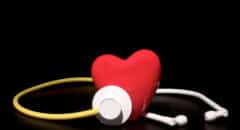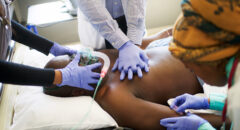
Knowing your body and how it should operate daily can be a lot more complex than we might think. To really understand your body and how it should be functioning daily, you need to give it a lot of attention, and as adults, that usually slips our minds most of the time. With life happening at every corner, you’re bound to not pay attention to minor bodily malfunctions. But what happens when these small malfunctions are no longer small? Now, they’re raising a lot more concern. What do you do and can you really tell if your body is failing you?
RELATED: 5 Heart Failure Symptoms Doctors Commonly Miss
Is It Possible To Detect Your Own Heart Problems?
It’s easy to tell when your body is tired or when you’re suffering a migraine, but can you detect your own heart problems? The answer is yes. Now you may not be able to pinpoint what the exact issue is but, you can detect if something is wrong on your own.
Remember the whole “paying attention to your body” thing? Well yes, that is the most important part of figuring out if there is something wrong with your main source of life. Small changes in how you feel when doing certain activities or after eating certain foods can be a way to see if something isn’t necessarily right. Here are some other ways.
How To Know If Your Heart Is No Longer Functioning Properly
Making sure you notice the little things resonates with every aspect of life, especially how your body is functioning. To determine if something isn’t right with your heart, look for these signs.
If you notice that you’re suffering from prolonged fatigue and weakness, that could be a sign that a few things could be wrong so pay attention to how long and often you’ve been feeling weak and or physically drained.
Another sign to pay attention to is shortness of breath when doing any physical activity or even when you’re not doing anything. It’s easy to look at shortness of breath and think it’s a result of lack of exercise, which can sometimes be the case but again, remember to pay attention to your body.
If you suffer from shortness of breath while walking to the bathroom or even doing something as simple as lying down, then it’s best to take note and reach out to your doctor.
Another sign to pay attention to is wheezing. Have you noticed that you’ve been suffering from a really bad cough for some time now? And it’s been causing you wheezing and discomfort in your chest? Persistent chest pain that you’ve been writing off as indigestion? These are usually symptoms of heart failure. Coughing up pink or white mucus is also a big indicator that something is wrong with your heart. Small upsets like these are what we fail to pay attention to with our bodies and though self-diagnosing can be overwhelming and not 100 percent accurate, it’s a good start. You don’t even need to jump into the negative. Just acknowledging that something isn’t right puts you ahead of what might be wrong.
RELATED: 3 Things That Can Severely Worsen Heart Failure
Different Types of Heart Failure
Now when you think of heart failure, usually you only think of one type right? The one that affects the heart obviously but here’s a fun fact:
There are three different types of heart failure.
The first type is Left-Sided Heart Failure. Left-sided heart failure is when the left side of the heart has to work a lot harder to pump the same amount of blood as the right side and two types of heart failure come with it.
Systolic Failure, is when the heart can’t pump with enough force to push a certain amount of blood into circulation.
The other is Diastolic Failure, when the heart doesn’t fill with blood between each beat (during resting time).
The second type is Right-Sided Heart Failure. Right-sided heart failure usually occurs because of left-sided failure. When the left side fails, there is an increase in the pressure of fluid, which then gets pushed back through the lungs and damages the heart’s right side. Once the right side can no longer pump well, blood backs up into the veins in the body.
The third type of heart failure is Congestive Heart Failure. Congestive heart failure is when blood begins to flow out of the heart slowly and the blood that is supposed to return to the heart begins to back up in the veins in your body. This causes congestion in the body tissues.
RELATED: Unexpected Physical Signs Your Heart Needs a Check-up
What To Do Next
If you begin to notice persistent changes, the first thing you should do is make note of them. Write them down if you can or store them in your phone or on something where you can access the information at any time. Jot down what you’re experiencing, if the symptoms are worsening and how you feel and how long they have been occurring. Once you do that, schedule an appointment with your doctor and show them what’s going on (the information you jotted down). These few steps will put you on the path to figuring out what’s going on and how to fix it.









